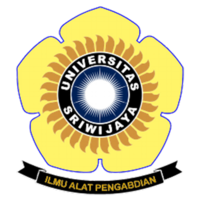Penyerbuk yang Berperan Meningkatkan Produksi Tanaman Semusim dan Tahunan secara Berkelanjutan
Abstract
Herlinda S, Sari JMP. 2022. Pollinators to enhance sustainable production of annual and perennial crops. In: Herlinda S et al. (Eds.), Prosiding Seminar Nasional Lahan Suboptimal ke-10 Tahun 2022, Palembang 27 Oktober 2022. pp. 40-60. Palembang: Penerbit & Percetakan Universitas Sriwijaya (UNSRI).
Pollinators (bees, butterflies, beetles, flies) are an important part of our ecosystem because they are food for human, mammals, and other arthropods. Insect pollinators are now starting to be threatened due to cultivation that is not eco-friendly. Insect pollinators play an important role in increasing sustainable crop productivity. One third of all the food is produced on pollinators, 90% pollination is conducted by bees. Both honey bees (Apis mellifera) and stingless bees (Melipona quadrifasciata anthidioides) provided higher apple fruit production than supplementation with honeybees alone. A. mellifera increased 10% production of cucumber. A. mellifera also increased the quality of fruit length and girth of guava (Psidium guajava). Apis dorsata increased the coffee fruit production 50% more than by wind. Apis cerana could increase 42.29% pollination of mango (Mangifera indica) compared to open pollination (33.36%). Bumble bees, Anthophora urbana and Bombus vosnesenskii induced higher yield and fruit quality of Solanum lycopersicum. So, the quantity and quality of fruits could be enhanced by pollinators.
Pollinators (bees, butterflies, beetles, flies) are an important part of our ecosystem because they are food for human, mammals, and other arthropods. Insect pollinators are now starting to be threatened due to cultivation that is not eco-friendly. Insect pollinators play an important role in increasing sustainable crop productivity. One third of all the food is produced on pollinators, 90% pollination is conducted by bees. Both honey bees (Apis mellifera) and stingless bees (Melipona quadrifasciata anthidioides) provided higher apple fruit production than supplementation with honeybees alone. A. mellifera increased 10% production of cucumber. A. mellifera also increased the quality of fruit length and girth of guava (Psidium guajava). Apis dorsata increased the coffee fruit production 50% more than by wind. Apis cerana could increase 42.29% pollination of mango (Mangifera indica) compared to open pollination (33.36%). Bumble bees, Anthophora urbana and Bombus vosnesenskii induced higher yield and fruit quality of Solanum lycopersicum. So, the quantity and quality of fruits could be enhanced by pollinators.
Keywords
insect pollinators, yield, bees, stingless bees
Full Text:
PDFArticle Metrics
Abstract view : 586 timesPDF - 4813 times
Refbacks
- There are currently no refbacks.

